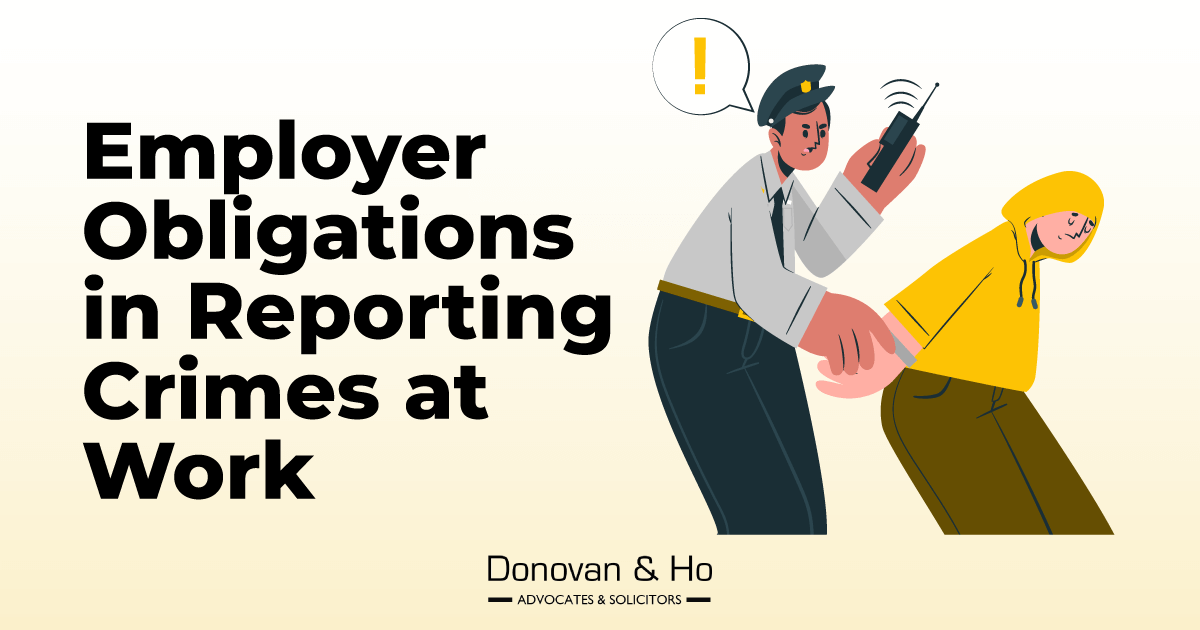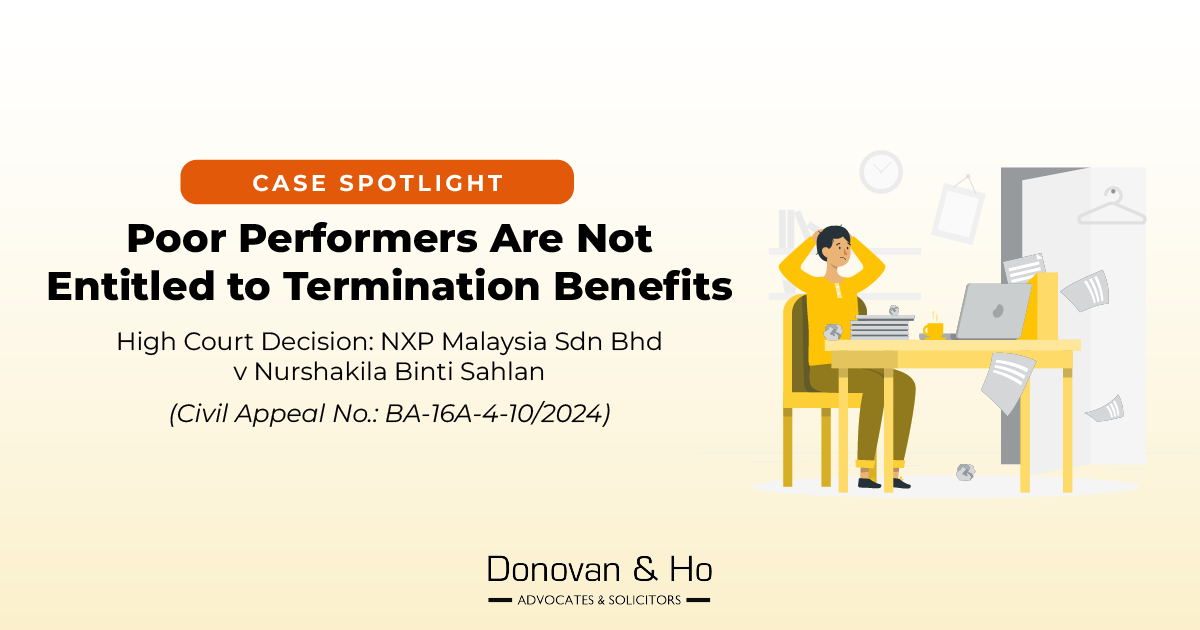Employers occasionally face difficult situations when allegations of employee misconduct involve potential criminal offences, such as drug use, theft, or fraud. These situations often put employers in a dilemma: should they treat the matter purely as an internal disciplinary issue, or do they have a legal obligation to report the matter to the authorities?
The Legal Position: General Duty to Report
Section 13 of the Criminal Procedure Code (CPC) states that every person who is aware of the commission of an offence punishable under the Penal Code or other written laws must immediately give that information to the police, unless they have a reasonable excuse.
This provision is given effect through Section 202 of the Penal Code, which makes it an offence for a person to intentionally omit providing information that they are legally bound to give.
In practice, Section 202 PC has usually been applied where a competent authority has directly requested information, and the person knowingly withholds it. It is far less clear whether liability would extend to situations where someone simply fails to proactively report suspicions.
Specific Duty to Report
Beyond the general framework under the CPC and Penal Code, certain statutes impose clear and specific reporting obligations that employers (or individuals within an organisation) must observe:
- Section 25 MACC Act 2009: Any person who is offered or who receives a gratification is legally obliged to report it to the Malaysian Anti-Corruption Commission.
- Section 14 Anti-Money Laundering, Anti-Terrorism Financing and Proceeds of Unlawful Activities Act 2001: Reporting institutions (eg. banks, insurers, securities firms, lawyers, accountants) must file reports on suspicious transactions, or those linked to terrorism. The duty arises based on suspicion or knowledge.
- Sector-specific laws: Employers in regulated industries (such as financial services, healthcare, or education) may be bound by sectoral reporting obligations under guidelines or licensing requirements.
These laws expressly create offences for failing to report, and non-compliance can expose both individuals and organisations to liability.
What Does This Mean for Employers?
The distinction between suspicion and actual knowledge is critical. Where there are only suspicions of wrongdoing (for example, anonymous allegations, uncorroborated complaints) there is no strict duty to report. Employers should focus on internal investigations or HR processes to investigate these matters.
The position shifts where there is actual knowledge of a crime. Although prosecutions for failure to self-report are uncommon, employers should anticipate full cooperation with enforcement agencies if approached. For serious offences like drug use, theft, or corruption, best practice is to proactively report. This reduces legal risk, protects workplace integrity, and helps avoid any perception of concealment.
Key Takeaways for Employers
At a minimum, employees must understand the standards of behaviour expected of them. Policies should explicitly state that misconduct such as drug use, theft, fraud, harassment, and other acts that may amount to criminal offences will not be tolerated.
Employers should examine if their policies address how to handle situations where misconduct may amount to a crime. For example, some policies provide that the employer may report the matter to the police if there is sufficient cause, serving both as guidance and as a potential deterrent. People managers must be equipped to take the right steps and know when to escalate matters.
A consistent process, supported by proper documentation and record-keeping, allows employers to respond to such cases with confidence, fairness, and legal compliance.
***
This article was written by Ilyssa Jace (Associate) from Donovan & Ho’s employment law & dispute resolution practice.
Donovan & Ho is a law firm in Malaysia, and our employment practice group has built a reputation for providing strategic employment advice to local and global organisations. Our team of employment lawyers provide advice on employment law and industrial relations including review of employment contracts, policies and handbooks, advising on workforce reductions, and managing dismissals of employees for poor performance or misconduct. We also represent clients in unfair dismissal claims and employment-related litigation.
Have a question? Please contact us.






